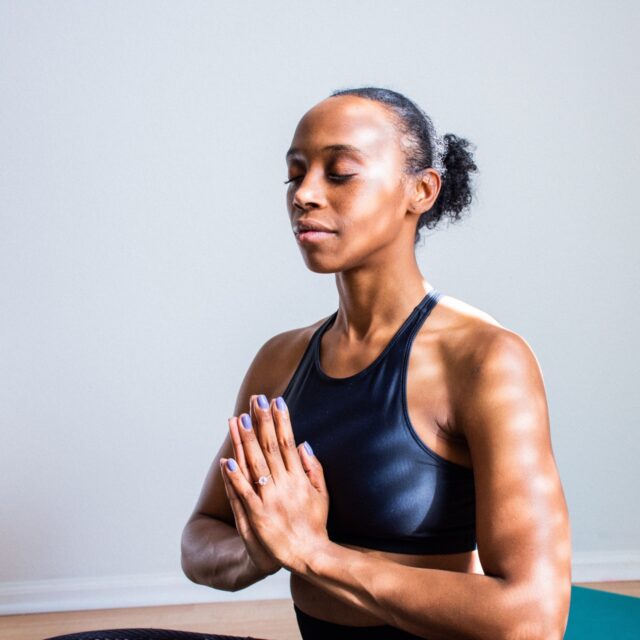
By Jenna Lebovits
With chronic diseases such as diabetes, obesity and heart disease on the rise, fostering individual and collective wellness is becoming increasingly important. Health coaches—who have recently emerged as essential agents in supporting individuals in creating lasting change—can be a powerful addition to any holistic wellness repertoire.
PURIST: What is a health coach, and what is their role in a client’s journey?
CALLIE MILLER: Health coaches guide people through states of change. They work with individuals in a client-centered process that facilitates and empowers the client to achieve self-determined health and well-being goals. Their job is to be a guide on the side, provide clients with a safe space to work through their barriers and provide accountability.
PURIST: Why is the demand for health coaches ever-increasing?
CALLIE MILLER: We at Mindbodygreen are always saying there’s never been a better time to be a health coach and here are three reasons why:
- Chronic conditions continue to be diagnosed at an alarming and accelerating rate. Millions of people are dealing with chronic conditions and don’t know how to make lifestyle changes that may improve their health. That’s where health coaches come in.
- Having lived through a pandemic, millions of people started to question their health and whether or not their body could handle getting sick. So, they started looking at ways to take better care of themselves and are looking for support with this so they can be preventive about their health.
- Physicians are beginning to recognize that their patients would greatly benefit from working with a health coach. They see that there needs to be a bridge between what the doctor can do and where the patient needs/wants to be. More doctors are recommending health coaches and many partner with health coaches they trust to refer their patients to.
In 2020, the health coaching market grew 15 percent since 2014, and is expected to grow another 25 percent by 2025. There are simply not enough health coaches to meet the demand.
PURIST: How does the scope of a health coach differ from a nutritionist or doctor?
CALLIE MILLER: A health coach does not prescribe, diagnose or interpret lab results and instead specializes in behavioral change and motivation to support overall well-being. Health coaches can work with clients who may have a diagnosis and recommendations from their doctor and/or a diet from a nutritionist to help the client form new habits and behaviors that are aligned with their health care practitioners’ recommendations.
PURIST: Founded over a decade ago, Mindbodygreen remains a prominent figure in the wellness world. What led to Mbg’s decision to offer an NBHWC-approved training program?
CALLIE MILLER: Here’s what Jason and Colleen Wachob, co-founders of Mindbodygreen, have to say about why they started this program:
“Both of us had struggled with our health—Colleen with a pulmonary embolism and Jason with high homocysteine levels. Our diagnoses turned out to be the wake-up calls we needed to get serious about prioritizing our health and well-being. Implementing holistic health practices into our lives proved tremendously helpful. We wanted to develop a program that would help empower people like us to take control of their health. But we were astonished by the pricing, long duration and lack of direction in many of the programs out there, so we set out to create something new and different. What sets our program apart is how we incorporate the fundamentals of science-backed learnings with holistic practices. It’s now referred to by many in the field as the gold standard of health coaching programs.”

PURIST: Mbg’s comprehensive, holistic health coach program is rooted in a 360-degree approach to wellness. What is the importance of training well-rounded health coaches?
CALLIE MILLER: A 360-degree approach to wellness weaves the mental, physical, spiritual, emotional, environmental and financial aspects of well-being together, because these pillars of health are all interconnected. We believe this is a vital lens for health coaches as so many believe that health coaching is simply guiding clients around what we eat and how we move our bodies—and it is so much more. Deeply impactful health coaches are behavior change experts and every pillar of health must be explored to make lifestyle changes that will dramatically improve health outcomes. It is the ethos of Mindbodygreen and we want every health coach who graduates from our program to be trained in this approach so they see the full human being in front of them and can help them explore the totality of their health.
PURIST: In addition to offering students top-tier health coach training from top wellness experts and doctors, students also receive a functional nutrition course. Can you share more about this offering and how it complements the coaching program?
CALLIE MILLER: Our Health Coach Certification is geared toward aspiring health coaches. It provides students with a foundational education in effective health coaching, including various methods of listening, inquiry, reflection, goal setting, mindset shifts and habit creation.In this program, students learn how to get clients, they actually get them, they actually coach them and they graduate from our program truly confident that can coach others. It is approved by the National Board of Health & Wellness Coaching, and graduates of our program are qualified to apply to sit for the national board exam.
While basic nutrition is covered within our Health Coach Certification, students seeking a more in-depth nutrition training benefit from our Functional Nutrition Training program. It earns graduates a certificate that says they are a Mindbodygreen Functional Nutrition Expert. The program does not teach how to coach, is not a board-certified coaching program; however, it’s a fantastic complement to the Health Coach Certification as it provides deep insight into a variety of health conditions that most health coaches are not trained in— including brain health, thyroid health, hormone health, autoimmune conditions and more.
PURIST: What else sets Mbg’s health coaching program apart from the rest?
CALLIE MILLER: There are several meaningful ways in which our program stands apart from other board-certified options:
- Our weekly training has been thoughtfully designed to maximize knowledge retention and skill building in the shortest period of time possible (versus spreading the course over six or 12 months).
- Our curriculum includes abundant real-time practice, including peer and faculty mock coaching feedback, to ensure students are confidently ready to serve as a health coach by the time they graduate.
- Certified health coaches—NBC-HWCs—will teach, train and mentor you through every step of the process. We truly believe that there is no better way for you to learn than from professionals who have successfully earned their board credentials and spent hundreds of hours working with clients.
- Our support doesn’t end upon graduation. We are committed to helping to position all of our students for success—not only through connection to our extensive wellness community and access to a robust network of graduates for opportunity sharing, but the alumni program also provides deep ongoing education across a range of topics. We firmly believe that the kind of support you need while learning to become a coach is very different from the type of support you need when you have become a coach. Our alumni ongoing education helps graduates build their businesses, get clients, and refine their offers and offerings. It provides the latest cutting-edge coaching updates and also includes ongoing board exam test prep classes along with guest speakers who provide real-world insights into all different ways health coaching can look for our graduates.
PURIST: Besides group and 1:1 coaching, what other career opportunities are available to certified health coaches?
CALLIE MILLER: There are a wide variety of settings in which a certified health coach can work. In addition to private practice where health coaches see their own clients, they can work in hospitals, functional medicine practices like Parsley Health, corporate wellness, schools or universities, wellness resorts or retreats, health spas, physical therapy offices, naturopathic medicine practices, sports teams and more. If they choose the self-employed route, they can set their own schedule and choose how many clients they want to work with. They can also do a hybrid structure where they work full-time within an organization and see clients on the side.
This is actually one of the things that makes health coaching such an incredible field—it can look so many different ways depending on where you’re at in your life, the kind of schedule you want for yourself and your family, and the kind of work you want to do at any season of your life. With health coaching, you can truly write your own script. I always say this to prospective students because it is true: We spend a lot of our lives working and I can think of no better thing to do with your working hours than to use them to help others live healthier, happier lives. mindbodygreen.com





